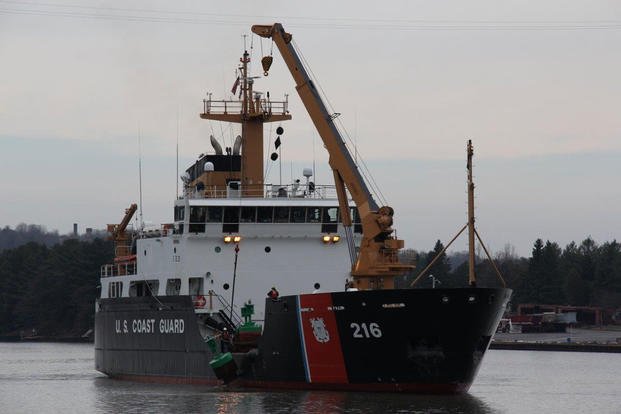FORT BRAGG, Ca. — On March 15, between midnight and 1:24 a.m., crew members on the US Coast Guard Cutter Alder discovered that approximately 500 gallons of diesel fuel had been released into the ocean about 30 miles off Fort Bragg's coast.
Alameda officers, including US Coast Guard Sector San Francisco Incident Management Division authorities, were contacted. The Alder is a 225-foot multi-purpose vessel based in San Francisco on Yerba Buena Island. She was initially assigned to Duluth, Minnesota, and was reassigned to the West Coast in 2022.
All state and environmental agencies, such as the California Fish and Wildlife Spill Prevention and Response Office (OSPR), were also notified. The National Oceanic and Atmospheric Administration ( NOAA) provided guidance for monitoring the spill and its drift. By Friday afternoon, a US Coast Guard flyover reported that the fuel was drifting east and evaporating.
NOAA predicted that the 500-gallon spill would evaporate within 18 hours since diesel fuel is categorized as a " non-persistent fuel." NOAA ranks a spill between 500 and 5,000 gallons of diesel fuel as "small."
Because the oil is lighter than water, a spill will not sink and accumulate at the ocean bottom. This also means that no oil adheres to any sediments. Generally, a "small" spill does not require recovery by a trained team.
Small spills from recreational and fishing boats that the public never hears of regularly occur. Although it is unfortunate to see boats and ships on the ocean, environmental groups have raised no general alarm.
Oil remains on the ocean's surface but will drift if the winds are strong enough. If the accident occurs close to shore, concern about a small spill is far greater. Coral reefs and seagrass beds can be adversely affected. According to NOAA research, "Diesel is one of the most acutely toxic oil types."
NOAA reported, "Any fish or invertebrates that come in direct contact with diesel in the water column may be killed." However, according to NOAA, "Small spills in open water are so rapidly diluted that fish kills have never been reported." Fish kills have also been reported in other water bodies, such as streams and shallow waters.
Marine birds can be affected by a small spill, but in past spills, the oil's quick evaporation has affected very few birds. Harm is far more likely if the spill falls directly into a nesting area. The same is true for shellfish.
To cause high mortality, the spill must occur fairly close to the shoreline. The ocean's constant movement contributes to the diluent and evaporation, and NOAA expects the process to continue without harming marine life.
Sarah Grimes, Marine Mammal Stranding Coordinator and Educator at the Noyo Center for Marine Science has been trained to respond to toxic spills in the ocean. She remarked, "I have not been contacted about this incident." The response seems to be state, federal, and military rather than including local response teams.
Spokesperson Chief Petty Officer Levi A. Read said, "The US Coast Guard's investigation into the cause of the spill is ongoing but has no timeline for completion." He explained how the cutter's crew diligently monitors the water for fuel releases, a protocol Sarah Grimes confirmed from her own experience.
Crew members routinely monitor fuel use at sea and check for any visible signs of fuel discharge into the ocean. The Alder, a buoy tender cutter, was en route to Humboldt Bay. When the spill was discovered, the crew determined the one-and-a-half-hour window during which it occurred.
The Alder was on a routine mission along California's coast. The cutter's crew maintains all the navigational channel buoys along the coast, from north of Los Angeles to the Oregon border. Buoys are repositioned when necessary and thoroughly cleaned yearly to keep their lights visible.
Coast Guard Rear Admiral Andrew Sugimoto, Commander of District 11, said, "We are investigating the incident and working diligently to minimize any potential environmental impacts. Our priority is protecting the environment and preventing future incidents."
___
(c)2024 Fort Bragg Advocate-News, Calif.
Visit Fort Bragg Advocate-News, Calif. at https://www.advocate-news.com/
Distributed by Tribune Content Agency, LLC.











